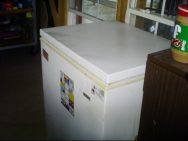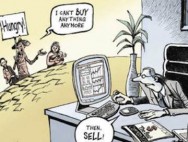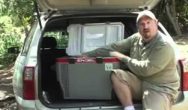With prices on everything going up and our earnings going down, many of us are living on the edge, some of us are only one paycheck away from being homeless. Right now, food and supplies for everyday living is readily available, you can walk into any store and find the shelves stocked with food. But you must realize those shelves can be empty in just a matter of hours in any kind of major emergency. These types of emergencies can be on a global scale, solar flares, asteroid or comets impacting the earth, to regional problems such as hurricanes, floods, wildfires, to very local problems, such as a car hitting a power pole knocking out the power for your entire neighborhood… even down to a very personal crisis, like losing your job, being injured and not being able to work, having an unexpected bill. What can you do to help ensure that you will survive?
As I mentioned, grocery stores have stocks of food, right now, but that could change in a heartbeat. It used to be that grocery stores had larger warehouse areas in the back of the store, they received fewer but larger shipments. Now, most stores have at best, a 3 day supply of food in the store, including the stock room in back. They receive multiple shipments a week, but ultimately receive less stocks of food from each one. If anything were to happen to the transportation of these foods, trucks, or trains, or airplanes or ships, then your grocery store will run out of food within about 3 days, that’s IF there isn’t a panic run on food, then you have hours at best. If something happened and you could not leave your home, starting right now, today, how long would it be before you started running out of food? How long before you would be in real trouble? A few days? A week? A couple of weeks? A month?
Today I’ll talk about how to prep in the area of food, even if you are on the tightest of budgets. If you say to me that you cannot afford to put back extra food for emergencies, I will tell you that is precisely WHY you need to do it. If you have extra food, even as little as an extra 2 weeks to a month’s worth of food, then in a financial emergency, such as an unexpected bill, or job loss, you will not have to choose between buying groceries and paying your rent or mortgage.
First you need to decide how much extra you can spend, if you do not have a budget written down, it’s time to do it and see just where your money goes, you might be surprised as to how much waste happens a few dollars here and a few dollars there. I know there are ways you can …








